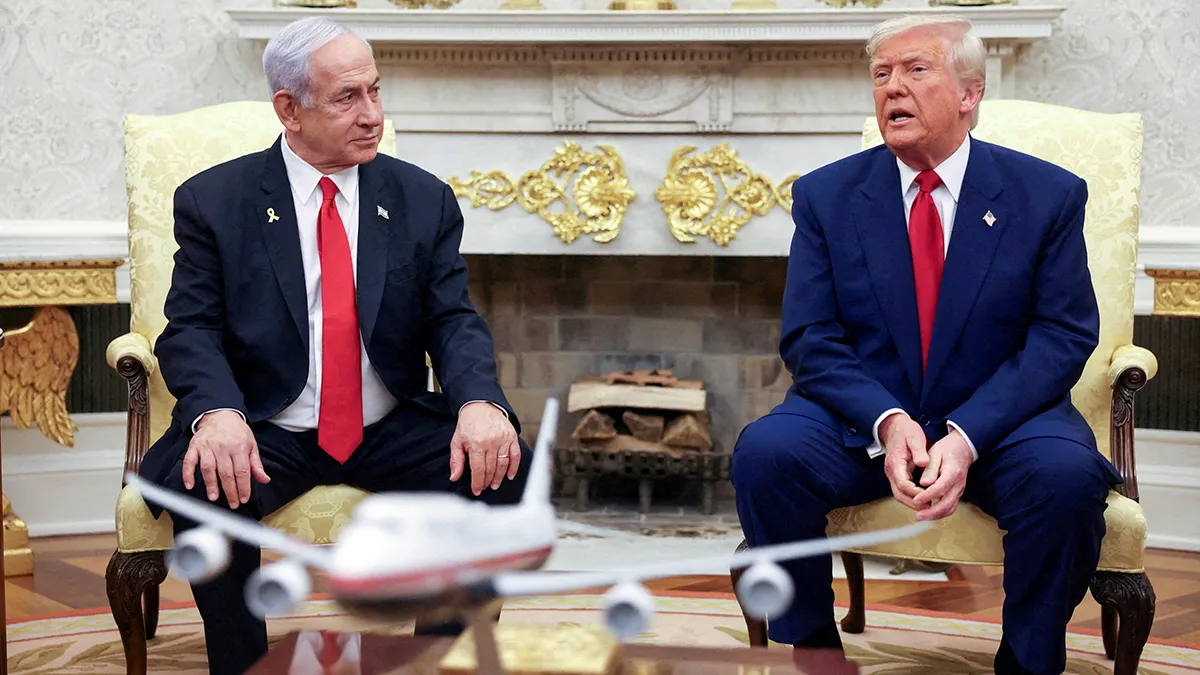Netanyahu’s Shift from Caution to Aggression
For decades, Benjamin Netanyahu was recognized as a cautious strategist who preferred limited conflicts and restrained military engagements. Earlier in his career, short operations in Gaza, often lasting days or weeks, defined his security policy. He frequently avoided long-term commitments, calculating the political costs of ground incursions and the risks of mounting casualties. Yet the aftermath of the October 7 attacks marked a pivotal turning point, reshaping both his leadership style and Israel’s broader security doctrine, which also influenced the transformation in US-Israel relations. Netanyahu’s transformation in US-Israel relations has redefined the strategic partnership between the two nations. Instead of temporary campaigns, Netanyahu embraced prolonged operations across multiple fronts, striking deep into Gaza, Syria, Lebanon, and even targeting Iranian infrastructure. His rhetoric shifted from containment to decisive elimination, with the promise of dismantling Hamas and curbing Iranian influence. This drastic shift reflects not only a change in military calculation but also an alignment with public sentiment in Israel, where many citizens demanded decisive action after the shocking security failures. Still, while this bold strategy has expanded Israel’s deterrence, it has also heightened tensions with allies and exposed Israel to greater international scrutiny. For deeper insight into the long-term impact of such security shifts, readers can explore Council on Foreign Relations Middle East analysis.
The Role of Domestic Politics and Coalition Pressures
Netanyahu’s transformation cannot be understood without considering the fragile balance of his coalition government. Once considered risk-averse, the prime minister now faces pressure from far-right allies who reject negotiations with Hamas and push for a permanent occupation of Gaza. Their influence has tied his political survival to the continuation of the conflict, limiting his flexibility in exploring diplomatic options. At the same time, his ongoing corruption trial adds another layer of urgency to secure a historic achievement that might redefine his legacy. Observers argue that his shift from pragmatist to aggressive strategist is not purely ideological but also shaped by political necessity. Public support for the war, once overwhelming, has eroded as economic strain, casualties, and diplomatic isolation grow. The challenge Netanyahu faces is balancing domestic political survival with international demands for de-escalation. Netanyahu’s transformation in US-Israel relations also reflects these internal pressures. To understand the interplay of politics and war, resources such as Brookings Institution Foreign Policy provide in-depth perspectives on governance under crisis.
Trump’s Calculations and the Fragile Future of US–Israel Relations
Netanyahu’s upcoming meeting with Donald Trump at the White House symbolizes more than just a diplomatic engagement—it reflects the evolving dynamics of the US–Israel partnership. Trump has consistently expressed support for Israel’s security measures, backing major strikes in Gaza and Iran, but his unpredictable decision-making often imposes limits. At times, Trump has curtailed Israeli military operations after initially endorsing them, signaling that US backing is not unconditional. Netanyahu transformation US-Israel relations highlight these unpredictable aspects. His recent remarks about an imminent peace deal suggest that Washington may push Netanyahu toward accepting a ceasefire, even if it conflicts with the prime minister’s military ambitions. This dynamic underscores the complexity of US–Israel relations, where strategic interests, domestic politics, and personal leadership styles intertwine. The outcome of this relationship could redefine not only Israel’s regional posture but also the broader trajectory of Middle Eastern geopolitics. Readers interested in exploring US foreign policy challenges in this context can refer to Carnegie Endowment Middle East Program and Wilson Center Middle East insights.



